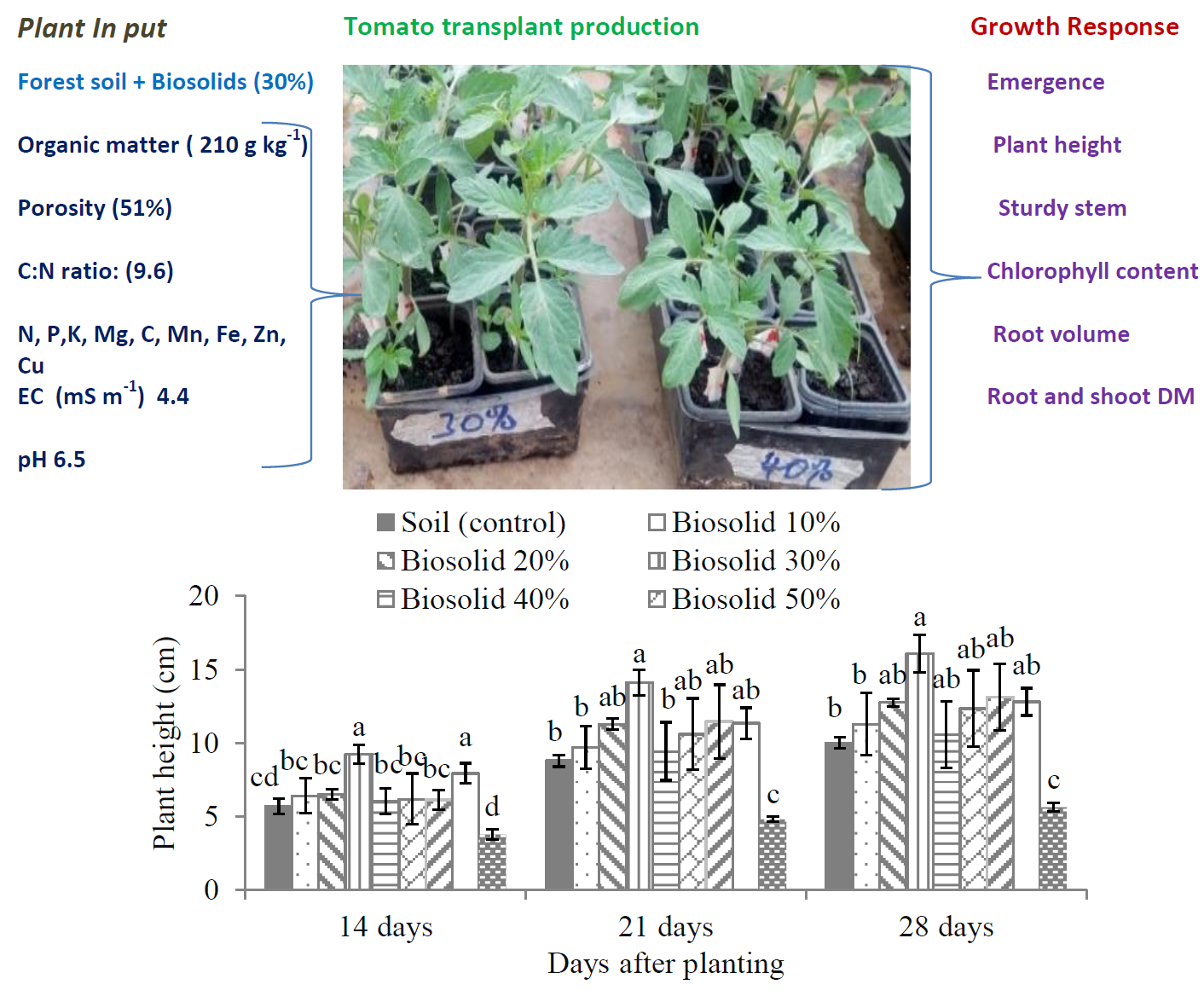Optimization of biosolids as a substrate for tomato transplant production: Biosolids as an alternative substrate in tomato

Published 2020-07-02
Keywords
- Biosolids,
- quality,
- seedling growth,
- Solanum lycopersicum L.,
- substrate
- tomato ...More
How to Cite
Abstract
The need to recycle waste and increasing pressure against peat extraction and importation, have led to increasing interest in substituting peat with organic wastes. Use of biosolids substrate would be a low cost alternative substrate to peat for commercial production of transplants. The objective of this study was to determine the effect of biosolids-forest soil mixture ratios on tomato ‘Maxim F1’, transplants emergence and growth. A randomized complete block design with four replications was used in this study. The treatments were: biosolids (BS) mixed with forest soil (FS) at rates of 0% 10%, 20%, 30%, 40%, 50% and 60% (v/v), tea compost (TC) and coco peat (CP). Five tomato seeds were planted in four 250 cm3 pots, grouped into four to form an experimental unit. Results showed that biosolids (BS) at rate of 30% registered significantly (p<0.05) higher seedling emergence (94%), leaf numbers (4.5), height (16.5 cm), collar diameter (6.3 mm), chlorophyll content (25 index units), root volume (2.0 cm3) and root/shoot dry matter (10.2 % and 16.3%, respectively) than the rest of the substrates except tea compost (TC). Sodium was significantly (p < 0.05) higher in BS at rates of 50% (350 mg kg-1) and 60% (376 mg kg-1) and this raised EC (4.5) and lowered pH of the media to 4.4. At 30% BS enhanced tomato transplant production to similar level as tea compost, hence recommended for commercial use.





